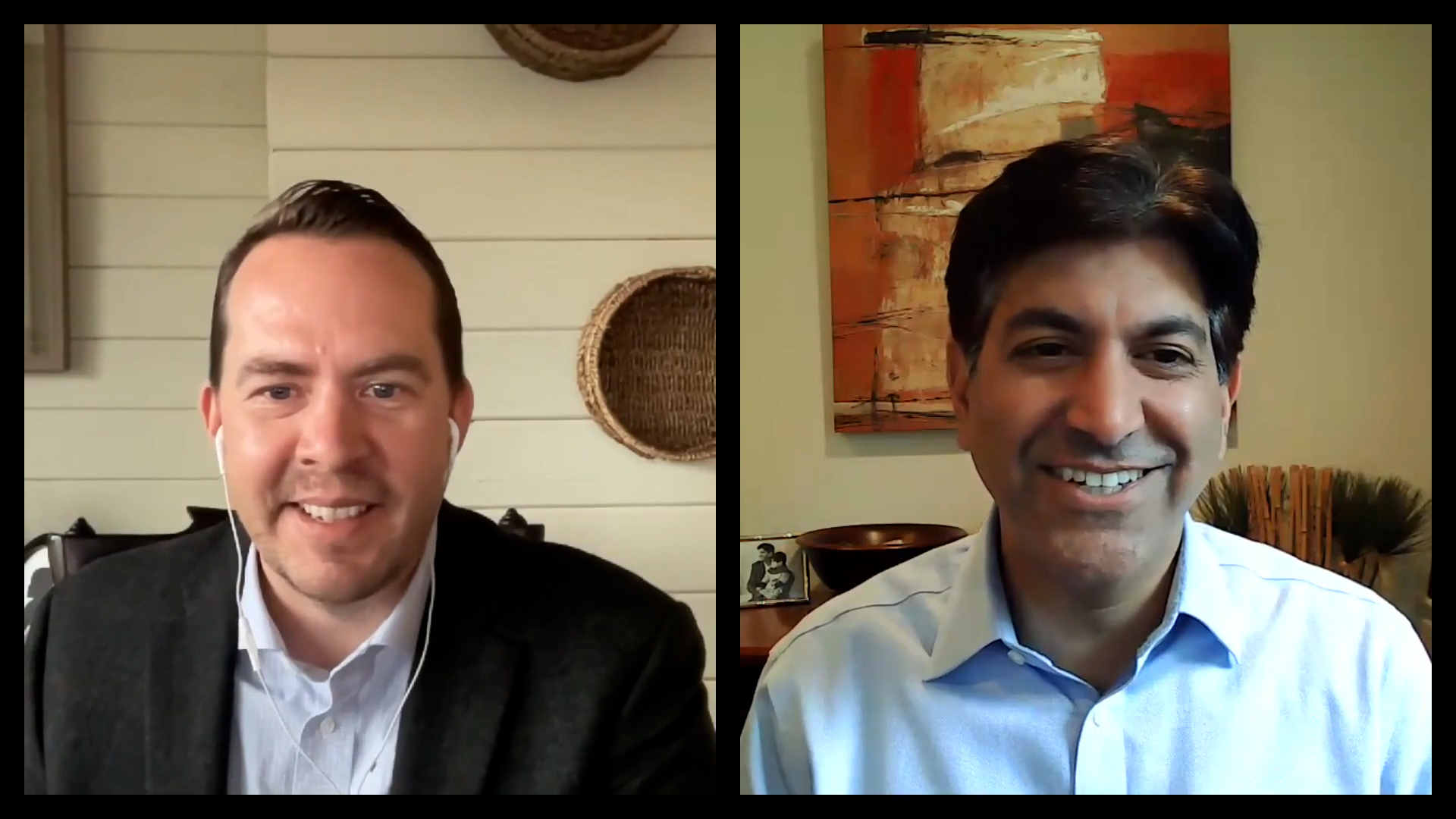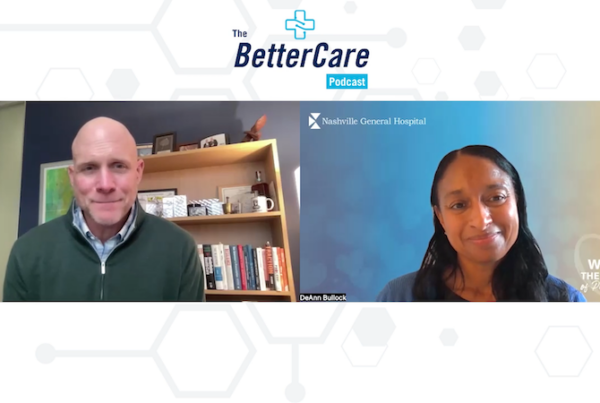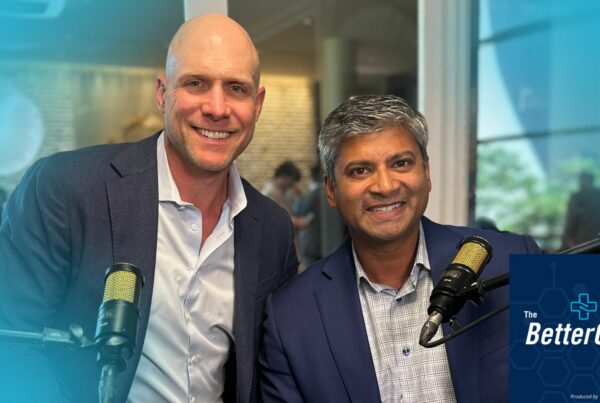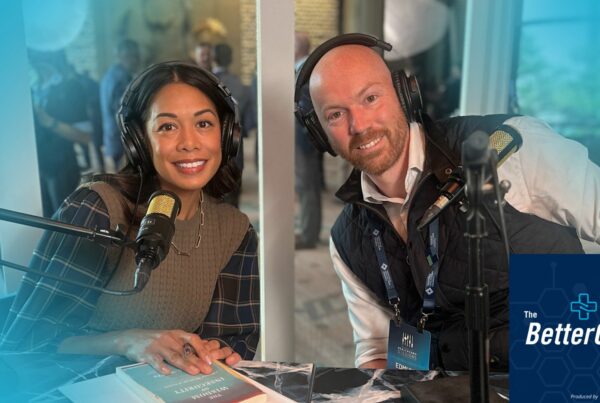ChatGPT in Healthcare | An Open Technology Discussion with Aneesh Chopra
The following article contains some of the topics from Episode 4 of The Better Care Podcast with CareJourney Co-Founder & President, Aneesh Chopra. Some quotes have been slightly edited for brevity.
Aneesh Chopra and Dr. Brian Fengler discuss their takeaways from ViVE 2023, Aneesh’s experience as CTO under President Obama, the role of open tech like ChatGPT in healthcare, how government policy and healthcare can work together, and how legacy debt is hindering innovation.
This article specifically focuses on the conversation around open tech and the implication of ChatGPT in healthcare.
Is the Healthcare Industry Ready for ChatGPT?
It feels like every industry is being revolutionized by artificial intelligence (AI) – or at least being pushed to revolutionize. While advancements in machine learning and natural language processing isn’t new to healthcare, there are countless new opportunities for improving patient care and outcomes because of one AI technology in particular, ChatGPT, which has received a lot of attention recently.
ChatGPT was developed by OpenAI and designed to generate natural language text that is like human language and can be fine-tuned for various language tasks.
Experts believe with proper implementation, ChatGPT – and other similar open technology platforms – could improve patient care, as evidenced by a study led by Ashish Sarraju, MD, which found that ChatGPT provided appropriate responses to 84% of basic questions that patients might search for online or ask their clinician in a patient portal. This demonstrates the potential of ChatGPT to transform the healthcare landscape and enhance healthcare services.
The Benefits of ChatGPT in Healthcare
Aneesh Chopra, Co-Founder and President of CareJourney expressed excitement about the potential of ChatGPT to transform healthcare during an interview with EvidenceCare’s Dr. Brian Fengler on a recent episode of The Better Care Podcast. He believes connecting ChatGPT with other technological tools could lead to a productivity revolution never seen in the industry.
Already, ChatGPT has been introduced into the healthcare industry through platforms such as DocsGPT by Doximity. This platform launched a beta version of an open tech chat tool for doctors, which streamlines time-consuming administrative tasks such as drafting and faxing preauthorization and appeal letters to insurers. This is just one example of how ChatGPT can make healthcare more efficient and effective for providers. Other areas of healthcare that can benefit from ChatGPT include:
-
- Public Health: ChatGPT’s ability to produce human-like text while analyzing a large amount of data could help people and communities to make more informed decisions about their health.
- Virtual Assistant for Telemedicine: ChatGPT can allow patients to manage appointments, treatment, and health information from home. With the rising popularity of remote care, a ChatGPT-powered virtual assistant can provide patients with guidance and support for their healthcare needs.
- Clinical decision support: ChatGPT can look at data to make clinical recommendations to healthcare professionals. It can suggest treatment options that have worked in similar cases in the past, and it can flag any medication interactions.
The Challenges of ChatGPT in Healthcare
There are many concerns about the risks and limitations of this new technology, especially in the healthcare space, where privacy and security are top priorities. As it stands today, some important issues the industry must address before AI can be used widely in healthcare include:
-
- Ethical Concerns: Like humans, AI systems are susceptible to bias which could result in decisions that are discriminatory or unfair. Additionally, it’s not clear who is accountable for mistakes made by AI systems. Human oversight will be necessary to ensure the output is correct.
- Privacy and security: AI systems gather substantial amounts of patient data which must be safeguarded against unauthorized access. It’s also crucial to ensure that patients comprehend how their data will be used. ChatGPT cannot currently be used with any PHI (protected health information) in a way that complies with HIPAA (Health Insurance Portability & Accountability Act) regulations.
- Integrations: To be fully effective, ChatGPT will need to be integrated with existing healthcare systems, such as electronic health records.
Despite concerns, the open technology behind ChatGPT and other AI platforms will be revolutionizing healthcare, and it’s not something the industry can ignore. With the ability to improve patient care, reduce costs, and make healthcare more efficient, ChatGPT is expected to play an increasingly key role in the industry over the coming months.
CIO’s Preparing for a Future with ChatGPT
Many Chief Information Officers (CIOs) of hospitals are likely feeling the strain of this sudden and impactful onslaught of open tech tools. Dr. Fengler asked Aneesh Chopra how CIO’s can prepare for implementing ChatGPT into hospitals:
“We just have to be thoughtful. This is not complicated… I think ChatGPT needs to be introduced thoughtfully with guardrails. It’s not going to come from the regulators; we’re going to have to do that, as an industry, to produce codes of conduct.
We’ve done it before with the CARIN Alliance and consumer-designated apps. Let’s do it again with applications with ChatGPT plugins that give us a framework for how to govern these amazing tools.” -Aneesh Chopra
To ensure they stay at the forefront of the advancing AI technology and leverage the full potential of ChatGPT, hospitals should proactively prepare. This requires providing employees with relevant training and education opportunities. It is essential to equip staff with knowledge of ChatGPT’s capabilities and safe usage practices to harness the power of this tool safely.
To hear the full episode of Aneesh Chopra talking about open tech and other top healthcare trends, listen to Episode 4 of The Better Care Podcast, available now on all major podcast platforms.


